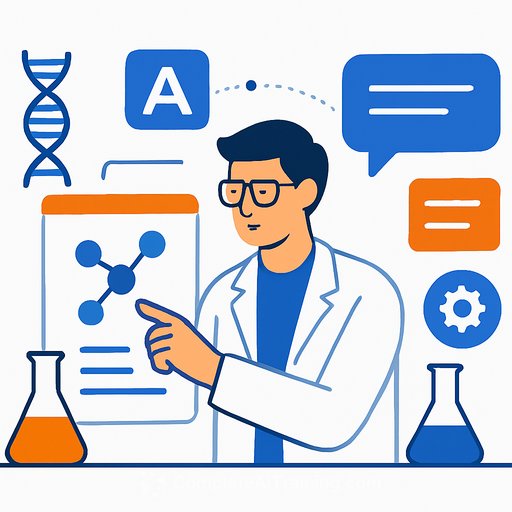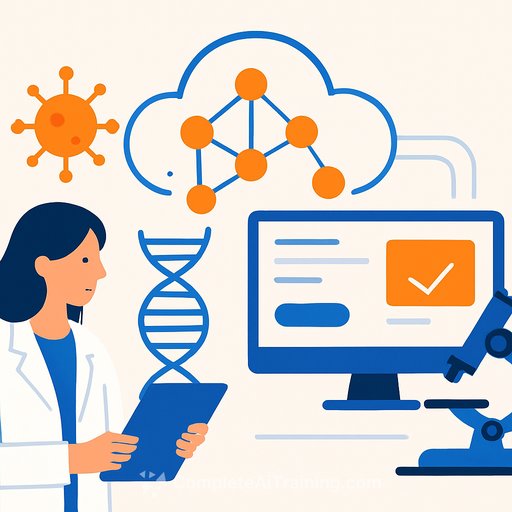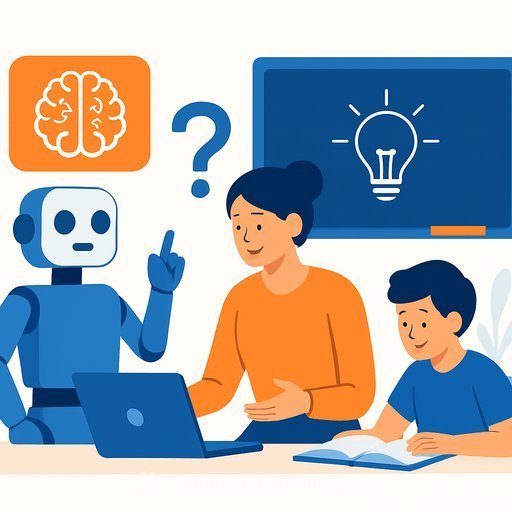Claude for Life Sciences: From discovery to commercialization
Scientific progress speeds up when researchers spend less time wrestling with tools and more time testing ideas. That's the point of Claude for Life Sciences. The latest release extends Claude from "help with a task" to supporting the end-to-end workflow - early discovery, translational work, and through to commercialization.
For scientists, clinical teams, and regulatory managers, the goal is simple: dependable reasoning, traceable outputs, and smooth handoffs between research and operations.
What's new: performance and research-grade tooling
Claude Sonnet 4.5 shows meaningful gains on life sciences tasks. On Protocol QA, it scores 0.83 using 10-shot multiple choice, above a human baseline of 0.79 and Sonnet 4's 0.74. It also improves on BixBench for bioinformatics tasks. The result: stronger protocol comprehension and better analytical reasoning on scientific workflows.
Beyond the model itself, Claude now connects to core scientific platforms, runs reusable Agent Skills, and ships with a library of life sciences prompts plus dedicated support.
Connect Claude to your scientific stack
- Benchling: Cite back to experiments, notebooks, and records so answers stay grounded in your source of truth.
- BioRender: Pull vetted figures, icons, and templates directly into your drafts and slide decks.
- PubMed: Search and summarize biomedical literature and clinical studies via PubMed.
- Scholar Gateway (Wiley): Access peer-reviewed content to accelerate literature reviews and synthesis.
- Synapse.org: Collaborate on shared datasets and analyses across public or private projects.
- 10x Genomics: Run single-cell and spatial analysis in natural language with 10x tools.
These join existing connectors like Google Workspace, Microsoft SharePoint, OneDrive, Outlook, and Teams. Claude also works with Databricks for large-scale bioinformatics and with Snowflake to query big datasets using natural language.
Agent Skills: protocol fidelity and repeatability
Agent Skills are folders that package instructions, scripts, and resources so Claude follows your protocols the same way every time. They're a natural fit for labs that care about consistency and auditability.
The first scientific skill, single-cell-rna-qc, performs QC and filtering for single-cell RNA-seq using scverse best practices. Teams can also build their own skills to match lab SOPs or therapeutic areas.
How scientists use Claude today
- Research and hypothesis generation: Run structured literature reviews, cite sources, and generate testable ideas. Claude can turn findings into slides and add figures through BioRender.
- Protocols and documentation: Draft study protocols, SOPs, and consent documents with grounding to Benchling records.
- Bioinformatics and data analysis: Use Claude Code to process genomic data and output results as docs, slides, or notebooks.
- Clinical and regulatory: Draft and review submission documents, and compile compliance data with transparent references.
Partnerships and field use
Anthropic provides hands-on support from subject matter experts and works with implementation partners like Caylent, Deloitte, Accenture, KPMG, PwC, Quantium, Slalom, Tribe AI, and Turing, alongside AWS and Google Cloud.
- Sanofi reports Claude is embedded in daily workflows and improving efficiency across their value chain.
- 10x Genomics notes researchers can run single-cell and spatial analysis through plain English, lowering the barrier for new users while scaling to advanced teams.
- AbbVie uses Claude in its GAIA platform for regulatory document generation and field insights, improving speed and consistency on AWS.
- Broad Institute is working with Manifold on agents built on Claude to explore biology at new scale and efficiency.
- Komodo Health highlights transparent, auditable workflows suited to regulated healthcare environments.
AI for Science program
To support high-impact research, Anthropic's AI for Science program offers free API credits to leading teams worldwide. These collaborations surface new scientific applications while helping researchers tackle pressing questions. Submissions are open.
Practical next steps
- Connect Claude to Benchling, BioRender, PubMed, and your document stack to ground outputs in your data and literature.
- Codify your SOPs into Agent Skills for consistent execution and easier audits.
- Start with the single-cell-rna-qc skill, then extend to your lab's workflows.
- Use Databricks or Snowflake integrations for large-scale analysis without switching contexts.
Availability: Claude for Life Sciences is accessible via Claude.com and the AWS Marketplace, with Google Cloud Marketplace coming soon.
Want structured upskilling for your team? Explore the Claude certification or browse AI courses by job.
Footnote: Protocol QA score (multiple choice format) with 10-shot prompting.
Your membership also unlocks:






